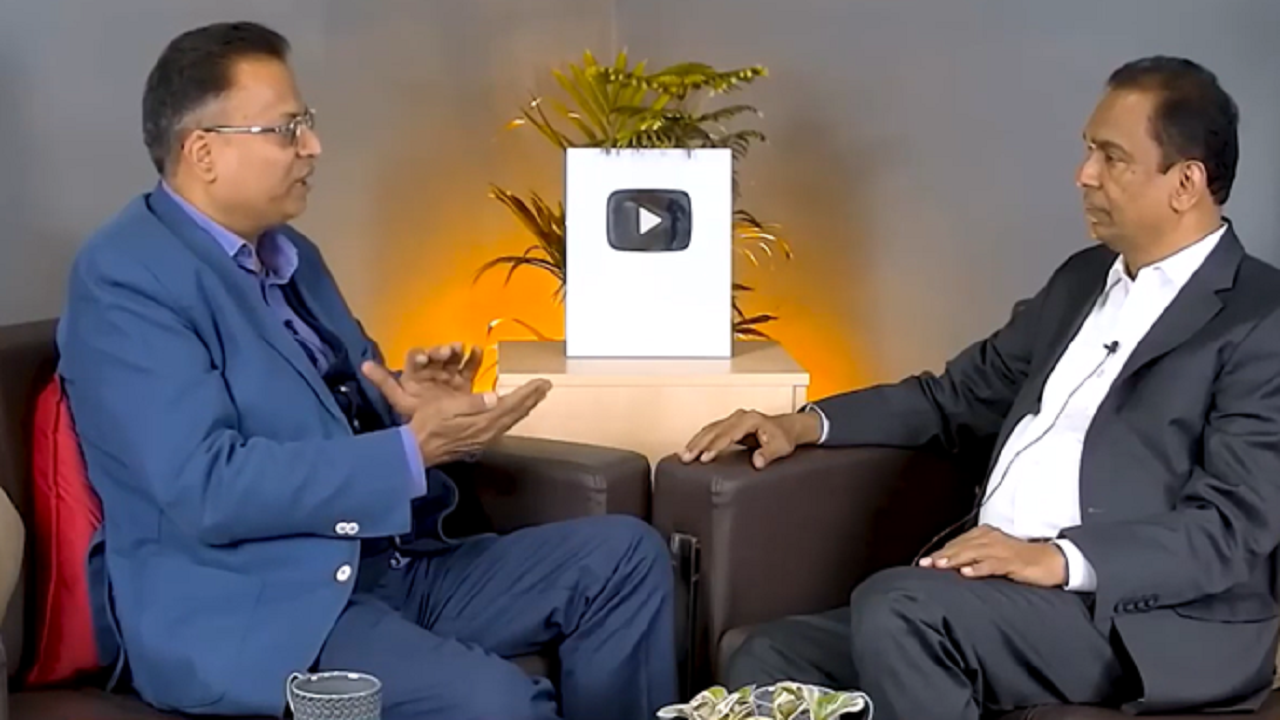
M.C. Dominic: Today, I'm very happy to introduce our guest Mr Rajesh Agarwal from Insecticides India Limited.
I would like to start with a question that I feel is not the exact clear picture of the industry that is agrochemicals. It is not helping the farmers or the consumers it is a health cascade. As an industry veteran, what is your opinion?
Mr Rajesh: I would say that it's a big misconception. If we look at the world today, the size of agrochemicals in the world is more than 60 billion dollars and if we look at India's domestic consumption so it is roughly about 3 billion dollars which is almost equal to five per cent. With this five per cent of agrochemicals, we are today feeding 17 per cent population of the world. If we look at our country which is the highest population in the populated country now so 17 people are living here and then we are also exporting a lot of food grains. So, I would appreciate the effort of our farmer who is not only feeding the 17 per cent population but also able to export. We have realized during the covid period the importance of food because it's a basic necessity and if you look at the challenges of our country whatever our country goes to buy outside the world becomes expensive. Why is it so? It is because our demand is so huge. If we cannot do it in-house and if we go outside then the people's eyebrow races because looking at such a great demand and looking at the like demand and the sales pressure, they create high prices for everything.
M.C. Dominic: What I want to ask you is a concept that these crop rotation companies are needing money but not the farmers, so how do you can say that the crop quotation companies are helping to make money?
Mr. Rajesh: It is believed that one rupee spent on agrochemicals should give eight to ten rupees of benefit to the farmer. Today, we see most of the medicines are 100 per cent doing this actually and even more and if you see the type of research activities which are happening, 10 years or 15 years before there was a flood of old Gentex. Today the new Gentex have started seeing their entry into India. India is manufacturing its own AIS for these products as we have started getting the registration. Many new agrochemicals are patented outside the world but due to the slow process, we are not able to bring those products which we are exporting to the outside farmer. I am not allowed to sell that product to Indian farmers because I am not granted the registration so we as a company and as an association are working with the Ministry of Agriculture should be allowed at least the patented Technologies to be made in India.
M.C. Dominic: I just see many of the crop rotation companies are exporting products to even Europe and America and all other countries but when it comes to India, they feel that it is harmful. Its so developed countries are aggressively taking the products from India because the Indian population is feeding that it is little harmful to India.
Mr Rajesh: I would say that it is just a spread by the media. Today, the Indian market is three billion dollars roughly the export from India is more than 3.5 billion dollars so 3.2 and 3.5 and it is expected to touch 10 billion dollars soon. People raise their eyebrows why it is rising? I should say the usage of chemicals is the parameter that shows that your country is developed. You cannot avoid the chemical because it is mandatory. It is a must if you are living in a certain tropical country with a lot of pest infestation so we need to kill those pests if you don't kill them they are going to eat your crop, same is for the disease we have good rainfalls lot of weed infestation to control the weeds, we use chemical in the form of insecticides or pesticides. So, it is very similar to when a child comes to a family, we have to take full care the farmer has to take care of his call.
M.C. Dominic: Sorry to interrupt, but I think there is so one misconception I do not know feel that see I remember in one of our discussions you asked me Dominic if you have a fever do you take several pills, no it should be a prescribed amount that will help you to get rid of the fever the same way said for the agrochemicals also the judicious usage of chemicals. What initiative is taking for that?
Mr Rajesh: We are bringing scientific mixtures. The idea is vast. Country language barrier reaching barriers through industries of knowing appointing too many peoples the idea is to give the education. We are trying to use social media, using different modes of communication. So, the entire idea is to educate the customer and educate them continuously. Ultimately, the idea is to eliminate misconceptions among people. We are aimed to educate people that chemicals, and pesticides, are necessary but in appropriate ratios. For example, if we ask our army to fight using the oldest technologies then it won’t be possible to win the war. Similarly, to deal with specified diseases, it becomes important to make use latest solutions.
We can make it we are already making it and exporting as I told you India's expert in making the generics why because we are so cheap means that we are very competitive. India gives an atmosphere where you can manufacture for twelve months, the resources are cheaper it may be the Manpower expert Manpower Labor. We are still cheaper than the neighbouring countries. If I compare ourselves with countries like Thailand, Vietnam, or China, we are at least 25 to 30 per cent cheaper than them.
M.C. Dominic: So, I feel that prime minister Modi’s “Make in India” Scheme actually can be a big road for play by agrochemical Industries so how do you assume what will be the business that can come from the agrochemical industry with the motto Made in India?
Mr Rajesh: This is a big opportunity for the country. If we look at today's international scenario then all the world is looking at China because they have seen that with the international turn of events you cannot keep all eggs in one basket. So, India is very important in it. We can offer the best quality product at a competitive price.
M.C. Dominic: What are the policy initiatives you feel can help the industry to be very competitive globally?
Mr Rajesh: There are two basic problems. The first problem is the registration. So, CIBRC and the Ministry of Agriculture Agrochemicals need to ensure an easy and improved registration system but still it needs further improvements because they say we'll give it fast but the days are not defined and they are not followed. So, you have to follow certain concepts for six months or eight months or nine months or even 10 months so if you follow that concept then the registrations can be faster. Another problem is the duplication of data. When it comes to toxicity you have to repeat toxic tests when it comes to bio frequency even for the genetic products or even for the known products if 10 tests are done already but we have to recruit those tests so you have to relax the guidelines so that the repetition is not required. There are a lot of international published data available if you can use most of that public status then the number one cost goes down the timeline goes down if you have developed a product, you can bring it to the market at competitive prices and becomes faster.
Another one is there are a lot of issues with pollution also so the guidelines are so stringent sometimes you are setting up a plant in the industrial area that Industrial Area, the environment clearance is already there but still they will say that you have to take individual environmental clearance for your plant. I believe that it is just a waste of time and money. At the same time whenever you are adding a product or whenever you are reducing a product or whenever you are adding a reactor or you are adding some dryer or boiler or anything you have to go again and again for approvals. So, there is no basic concept of this much water you will release for this much water we have given the permission you have 20 products if you want to change the product do it faster so things are not very fast.
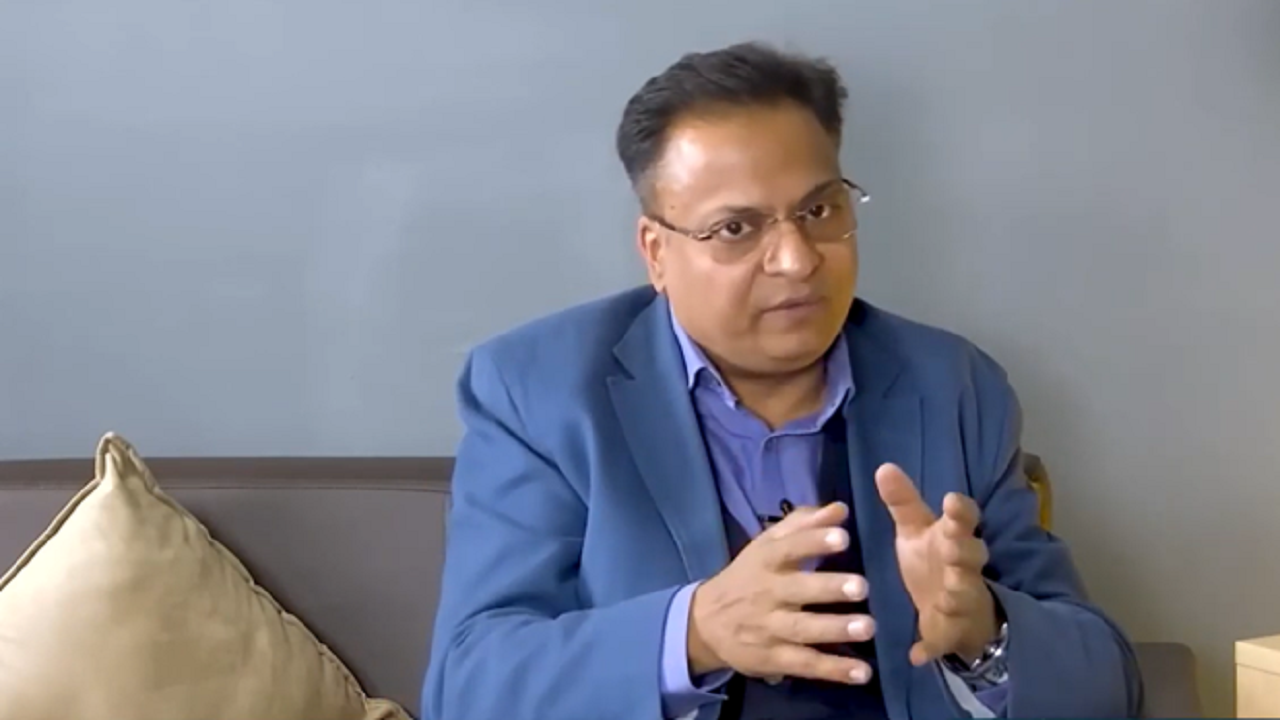
M.C. Dominic: At that time, do you feel you are within India you are working something different from India or do you have to ask for everything you have to work for?
Mr. Rajesh: Many times, I say that there has to be support for the industry at least the universities which are in your area, other government bodies government has established many research centres and all the things are not aligned with the industries at least you can align with the industries of your District you can support them Industries can support you that is possible. We have to build that trust so that everybody moves with one agenda. Today the industry is developing why because the internet Revolution is already there you have got the information you know the International Information so everybody is developing on the road which is full of speed breakers, I'll not say that we are on an expressway once you are put on expressway the speed will be 1000 times better. So we are working on a road full of speed Breakers and potholes and we are driving in the second year and third year we are not able to put this Top Gear top here.
M.C. Dominic: What will be your plans for the next five years which are some of the things you think will change the agrochemical industry what do you feel?
Mr Rajesh: I feel that it's Innovation which is very important and continuously our scientists are working you know R&D centres to do the innovation. When I say the word innovation, it may be of various types. For example, first, we do the innovation of formulations that how we can make better formulations because I believe that a customer never comes for a product he needs a solution sometimes he thinks of the solution sometimes he's not imagining but that is the pain area which you have to observe and you have to understand that what is the requirement of the customer. If you can meet his requirement then of course he feels happy. So, you have to make satisfied customers for which you have to provide the solutions so we are working a lot on the formulations and we are trying to provide the mixtures the newer formulations the new generation formulations which are fast degradable so we are trying to give them better solutions.
Another part of our R&D is whatever is getting off patented it is the public regime and you can bring those products to Little India so since when they are the monopoly they are at highly-priced a farmer cannot afford them only the developed farmer can afford them so we are trying to bring those Technologies to the country at affordable price. Therefore, we have done this for dozens of products and we are on our way we have applied for dozens of registrations more the idea is to make the technology affordable so that the farmer the price of agenda can take a new generation to generate which is a monopoly product but more effective more Progressive so he can use the same products with the progressive farmer issues.
And on the third front, we are trying to invent those products actually in a JV with the Japanese company and these products will not only be used by the Indian farmer but also by the International Farmers. Along with this, we are also working on the biological front we have set up a biological company we have two R&D centres for biologicals because I believe that Biologicals have to coexist with chemicals. Because you can start with the Biologicals for soil and plant health also for insect control fungal control Disease Control. All these things can happen with the biological starting the way we live and the way we use foreign also in his fields and once he feels that the time has come and the infestation of whatever disease pest weed is going up he can use the chemicals so we can make a combination I believe that will be more sustainable it will be a co-existence of this both because if we wish to look at the long run then the only solution is that all the technologies have to coexist and the consumer should get the opportunity or the farmer should get the opportunity to use everything.
M.C. Dominic: If I ask you do you think you have a majority of the stake in some products or some areas you feel you have a majority stake we are very aggressive across all crops rice has been one of the popular crops.
Mr Rajesh: I would say very popular cotton chillies nowadays even in sugarcane wheat so we are present across crops I would say also in Horticulture tea potatoes so we are covering all crops now but Patty has been the major foray for us but now we are spreading everywhere.
M.C. Dominic: As we are talking everyone understands without crop rotation material, we cannot survive in agriculture but if we see every day there are a lot of allegations of problems with furious chemicals, how does the industry feel about it and what are your thoughts on it?
Mr. Rajesh: A lot of efforts are being made to curve this spurious product the latest being the QR code which the government is trying to implement and the companies have already started implementing so a farmer can take a photograph of a product from his normal mobile phone there is a QR code and from QR code he'll connect to the company so you'll come to know that it is a genuine product he can talk about that and understand the usage he'll get all other things goes to the company's app so all those efforts are already being taken by the companies. There is a customer care number also on every bottle and the farmer can call the company can talk to The Experts of the company that facility is also available and many of the companies in the trade have set up their call centres also these days so in the local languages also you can talk and now the technology is also supportive we are working that the information which the farmer gets he gets it in his local language even if it is the voice message that voice message will be in the local language we are working for that so I believe in 2023 this type of breakthroughs will be very common and which will like a farmer can get an assurance that whatever products he's getting they are the genuine products?
M.C. Dominic: Today as you see you are planning to bring out some new products in coming here this year.
Mr Rajesh: Yes, there are a lot of products in the pipeline more than half a dozen different types of products insecticides, fungicides, herbicides everything is in the queue. Also, some biological products are there so we continuously keep on giving these products. The idea is - the way a farmer is using the agrochemical has to change. I would say that the agriculture which is happening today in the country is more a traditional agriculture. When I say traditional people don't want to change, they say my father used to do this I'll do this so if you are going to follow the same old process what dadaji used to do then it might become very difficult that the income which the other used to get that you are going to get the same income or more income it's a challenge. So here is what we want we want to talk discuss with the farmer you have to change the practices number one you might have to change the crops also you might have to do additional crops in your area.
Like if you look at the central part of the country which is a plateau so sometimes I am talking to my teams there are a lot of schemes of the government why don't you convert one or two acres of land into a pond so that in the time when there are no rains you can use that water for irrigation so that is possible there are a lot of schemes but people don't come out of the Traditions sometimes some people are doing it some people are showing a lot of change. Horticulture these days they are making good money the vegetable farmer is making good money the people who are putting pulses and additional crop they are giving they are getting good money the plants become fertile uh on one part they get Chara for their animals and these days the father is becoming so expensive all type of water there are takers to the father of everything actually these days so that is also a source of income actually for the farmer Source the farmer has to see that the things comprehensively plan what additional crop he can do he has to plan what inputs he has to use because sometimes I feel that urea being very cheap he is using excessively very high quantities of urea which is not helping because it is getting drained into the soil and it is not coming to the plant but since he has got habited in like he has a habit five bag, six bags, or even more whereas the requirement is two bags but he keep on using so the Vestige was also happening and same is true with agrochemical also in certain cases when the price of a vegetable is too high then he will unrequired quantities also sometimes he can use so those are some challenges but if the agrochemical use in the right way then definitely the judicious use are going to make them more popular and definitely increase the income of the farm.
M.C. Dominic: I have another word to ask you see when we talk about Farmers everyone feels their poor community there no aspirations what do you think how we can change that image of this farming community that they are just something compared to a labour-oriented class from that to an entrepreneur Community feel that they are also business Community? How do you think that generation change can be made?
Mr Rajesh: Sometimes I also feel the number of people who are into agriculture is too high. A lot of the population is dependent on agriculture directly and they are living in villages. If we look at the world today, people are shifting to the towns and also with the building of roads, infrastructure and internet, the knowledge of people is going up. The aspirations are already going up the usage of data on mobile is one of the highest in the villages which means people are consuming more and more mobile data. I mean the young generation has already started developing. I would say that day is not far when the farmer is going to live in a town in a flat and he is going to come back the car to his field take a tractor do the agriculture and go back.
So, we also need to set our mindset because sometimes whenever that image of the farmer strikes us we think the farmer is poor he's not poor he has to be rich if we look at the value of his land is into a cross and we'll be having 10 lakh Rupees land or a one crore rupee land in the land can be 10 crores but he needs to capitalize understand and do those things. So, our farmers are getting the development and the children which are coming into farming they are smarter and with the resources and information coming in I see that there would be a big breakthrough actually in agriculture and the farmer is going to be richer. That’s why, I think we will be back with bigger this type of questions and answers with the interested leaders.






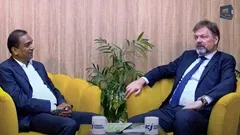
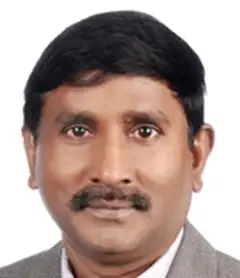
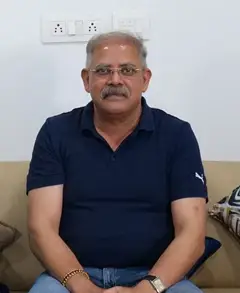
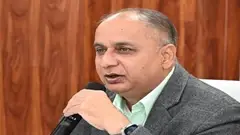





Share your comments